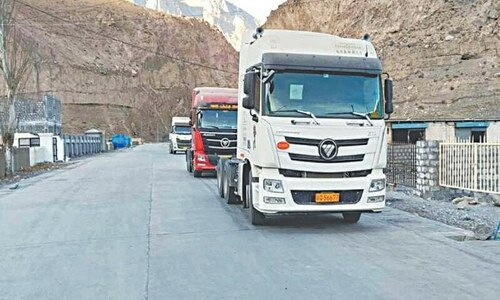BY virtue of a landmark judgment by the Sindh High Court on Feb 26, amendments carried out by the government to five of the labour statutes through the Finance Act 2007 were declared invalid. Those amendments should have been routed through and passed by both the houses of parliament as they did not relate to money matters.
One such amendment related to the definition of worker in the Companies’ Profits (Workers’ Participation) Act 1968. Besides a company’s own workers, it now included workers employed by or through contractors.
Under this act all companies have to allocate five per cent of their net profit to workers’ participation fund, bulk of which goes every year to the government and part of it to illegible workers. The respective shares are computed in accordance with a prescribed formula in the act.
Initially companies were quite worried and reluctant to include their contractors’ workers for disbursement of the fund, popularly known as the Workers’ Profit Participation Fund (WPPF). They thought that being direct beneficiaries of profits, might prompt them to claim the status of company’s permanent employees.
Secondly, the money so handed over to the contractor for distribution amongst his workers might be embezzled by the contractor himself. However, companies gradually realised that there was no escape from the law and they started paying the share in their profit to contractors’ workers.
Now with the changed situation, a dilemma has been cropped up for employers whether to continue paying the WPPF to contractors’ workers. Both have their own implications which are: (a) If they continue to pay the WPPF to contractors’ workers, the government may later on claim from the company the amount so paid, stating that in accordance with the court judgment the money should have gone to the government instead of paying it to contractors’ workers.
(b) The government has the power to carry out any amendment to laws with retrospective effect. If it decides to do so with respect to this provision from the date of the court judgment, employers will again become liable to pay the WPPF to their contractors workers.
Those amongst them, who would already have paid this amount to the government, will have to make the disbursement from their own funds, thus inviting a penalty for themselves for no fault of their own.In view of the above circumstances, the government should clarify at once its position to all companies operating within the country as to how they should deal with the situation arising out of the court judgment. Moreover governing body of the Workers Welfare Fund in Islamabad should also write to each of the companies making payment to the fund explaining the government’s position in the matter.
PARVEZ RAHIM Karachi














































Dear visitor, the comments section is undergoing an overhaul and will return soon.